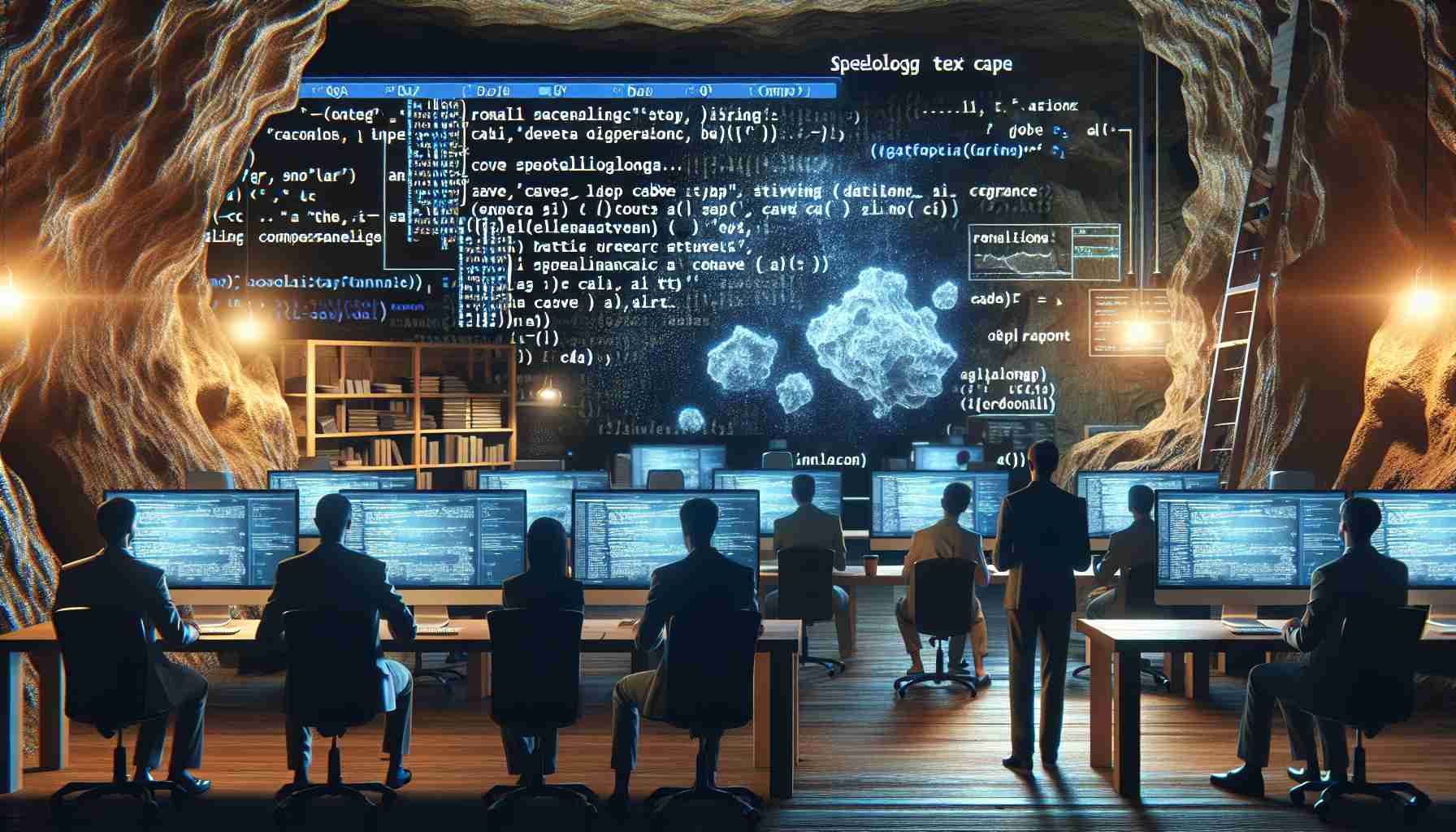Exploring Caves with AI: An Interactive Workshop Announced in Perugia
The ever-evolving field of artificial intelligence (AI) is making waves across various sectors, and speleology is no exception. Embracing this technological momentum, the Umbrian Federation of Speleological Groups (FUGS) is taking the initiative to merge AI with cave exploration by hosting a workshop titled “Engaging Artificial Intelligence in Speleology.”
Scheduled for Tuesday, May 21, 2024, at the GSCAI Perugia headquarters, the workshop will feature Andrea Scatolini from the UTEC Narni group, a well-recognized mind in the speleological space for driving knowledge into the digital age with platforms like La Scintilena.
The Artificial Intelligence Revolution in Speleology
This event represents a step forward in understanding the societal implications of AI, with a laser focus on the specialized context of speleological research and documentation. Attendees will be provided with an overview of AI technologies, highlighting both their advantages and the ethical considerations that accompany their advancement.
Text Generation AI: A New Era for Speleological Content
The workshop will delve into the area of text-generating AI, showcasing its growing applications and potential to transform content creation. Participants will explore how AI tools can be leveraged for writing and recording in speleological work, while emphasizing the irreplaceable value of the human touch.
Open to all who are keen on unraveling AI’s capabilities, the meeting encourages the speleological community to engage with how AI might shape the future of exploration and knowledge dissemination.
Though the workshop will not be streamed online, it will be recorded, allowing those unable to attend to access the deliberations afterward. With the event date fast approaching, there’s an upsurge of interest within the speleological community, who recognize the significance of staying informed on technological progresses and their relevance in the niche field of cave exploration.
FUGS invites enthusiasts and professionals alike to participate in what promises to be a pivotal learning and networking event worthy of their curiosity and passion for speleology and scientific writing.
Important Questions and Answers About AI in Speleology:
Q: How can artificial intelligence be applied in speleology?
A: AI can be applied in speleology for predictive modeling, pattern recognition in cave formations, cataloging and analyzing cave biodiversity, automating data collection, enhancing safety protocols, and fostering accessibility of caves through virtual reality simulations. Moreover, text-generating AI specifically can assist with the creation of research papers, expedition reports, educational materials, and grant applications.
Q: What are the key challenges and controversies associated with AI in speleology?
A: One of the key challenges is the potential for AI to miss or misinterpret nuanced geological data that a human expert would recognize. Ethical controversies include data privacy concerns, reliance on AI potentially reducing human skill sets, and the use of AI in access-restricted areas leading to unauthorized exploration. There’s also the risk of AI-generated content proliferating misinformation if not properly overseen.
Advantages and Disadvantages of AI Text Generation in Speleology:
Advantages:
– Efficiency: AI can quickly generate reports and documentation, freeing up time for researchers to conduct fieldwork.
– Data Processing: AI can analyze vast amounts of data to uncover new insights and patterns in speleological data.
– Inclusivity: Making more content available can help include a broader audience and can potentially attract new participants to the field.
– Accessibility: AI tools can translate content into multiple languages, making speleological research more globally accessible.
Disadvantages:
– Accuracy: AI may not always interpret the context correctly, leading to errors in generated texts.
– Dependency: Over-reliance on AI can lead to a decline in traditional documentation skills among researchers.
– Ethical Concerns: Issues such as intellectual property rights over AI-generated content, potential job displacement, and the misuse of AI tools need careful consideration.
– Trust: Proving the credibility of AI-generated content may be a challenge in scientific circles where peer review and validation are critical.
For more information on AI advancements and applications in different fields, including speleology, you can explore the following resources:
– DeepMind
– OpenAI
– Google AI
– IBM Watson
Please note that while the URLs provided are meant to lead to domains related to AI, because of the constant evolution of websites and their content, the validity of these resources can change over time.

